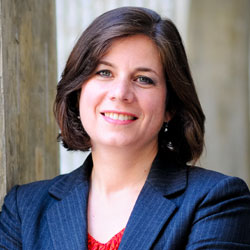Vending Machines and Access to Birth Control
Vending machines stocked with emergency contraceptive pills were installed on several campuses across the country this year, including Stanford. Known as the “morning-after” pill, it is effective in preventing pregnancy if taken before the egg has attached to the uterine wall (typically within 24 hours). Restrictions on use of the pill were lifted in 2013 when the Food and Drug Administration made the drug available over the counter. In this Q&A, Stanford Law Professor Michelle Mello discusses the “morning-after” pill, the regulation of it, and its availability.

Plan B One-Step is now an over-the-counter drug. Is it legal for women under 17 to buy it themselves? Do they need parental permission?
There are no age restrictions on purchasing Plan B (or generic equivalents) over the counter. No ID or parental permission is required. A few states have laws that allow pharmacists to refuse to dispense medications based on personal beliefs, but as long as emergency contraception is stocked on store shelves rather than behind the pharmacy counter, the pharmacist doesn’t need to be involved.
Research has shown that some pharmacies are not making the drug available for over-the-counter purchase—and many pharmacists still believe they need to check ID before selling it to younger women. Is that legal? How can that be addressed?
There have been quite a few changes in the law over the last few years. Sometimes it takes a while for everyone to catch up. It’s also possible that these actions on the part of pharmacies reflect a moral objection to the broader availability of emergency contraception.
State boards of pharmacy and drugstore chains may need to work harder to ensure that everyone understands the current state of the law. With the rising dominance of mega drugstore chains, it’s easier to get the word out than when “mom-and-pop” stores were the norm. Consumers can also come to the store with a factsheet in hand, like this one from a trio of women’s health organizations. Complaints can be filed with state board of pharmacy or the company’s corporate office.
Do you see any legal issues arising from the availability of emergency contraceptive pills on college campuses via vending machines?
The liability risk is vanishingly small, and certainly outweighed by the benefits to women of having ready access to emergency contraception. Anytime a consumer buys a drug over the counter rather than with a doctor’s prescription, there’s a risk that because she’s not getting counseling about the drug, she won’t have as good an understanding of the dosing instructions or side effects. But vendors aren’t likely to be held responsible for that.
Michelle M. Mello is Professor of Law at Stanford Law School and Professor of Health Research and Policy at Stanford School of Medicine.
